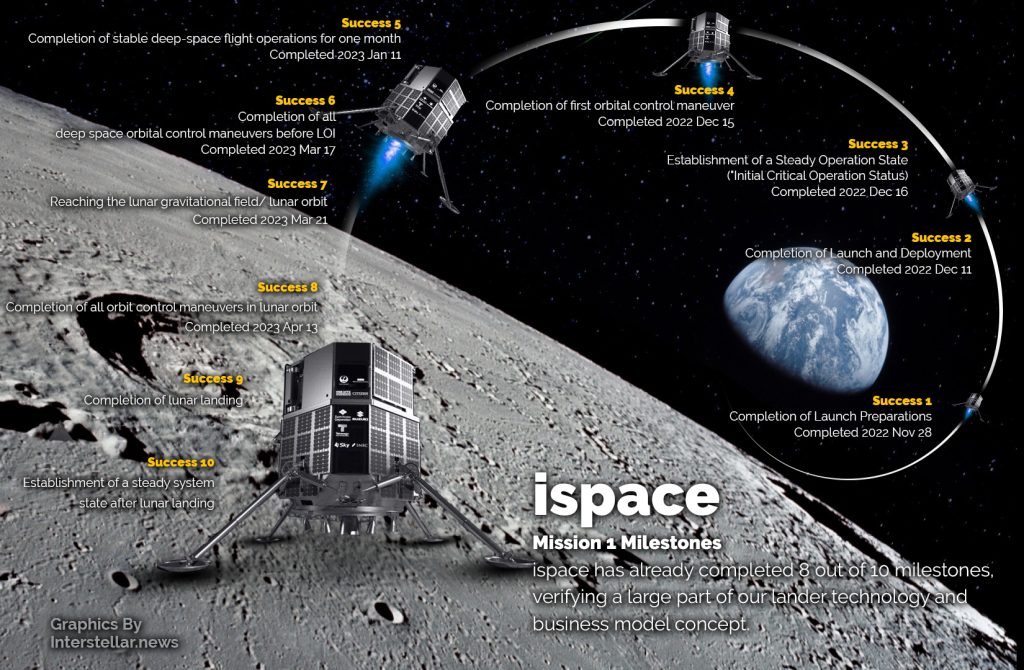A lunar lander developed by Japanese startup iSpace, named Hakuto-R, descended to the moon’s surface after a journey of several months. However, during the final stages of the mission, the lander went out of contact and was presumed lost. ispace CEO Takeshi Hakamada confirmed that they could not complete the landing, and ground controllers in Tokyo tried to re-establish communications, but to no avail. Despite this setback, Hakamada said they would continue their lunar quest and try again.
Hakuto-R, named after the mythical white rabbit on the moon, was launched into space in December 2022 aboard a SpaceX Falcon 9 rocket. It traced an unhurried low-energy trajectory to lunar orbit. The robotic probe was designed to test the technologies and procedures for commercial supplies to the moon’s surface. It was programmed to land in the northeast quadrant of the moon’s near side, at the 87 kilometres wide Atlas Crater. The lander was also set to deploy two mini-rovers for surface exploration, while other payloads would have carried out publicly- and privately-financed scientific experiments. One such payload was the Rashid Rover built by UAE’s Mohammed Bin Rashid Space Centre.
Ispace’s mission control team shared the last telemetry during the webcast, indicating that the spacecraft descended at 33 kilometres per hour from an altitude of 295 feet. However, the persistent loss of contact suggested that the lander was likely damaged or destroyed upon impact.
ispace finds its origins in the Google Lunar X Prize, a competition that set aside $30 million in rewards for commercial moon landing efforts in 2007. The top prize went unwon and was withdrawn in 2018, but Team Hakuto reorganised as ispace and continued working on its lunar lander. The company’s backers include Airbus Ventures, Suzuki Motor, and Japan Airlines, and it has over 200 employees. A successful landing would have made ispace the first commercial venture to put a working spacecraft on the moon. However, in 2019, a privately funded effort sent the Israeli-built Beresheet lander to the moon, which unfortunately crashed.





